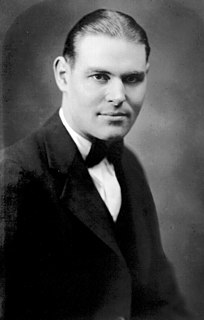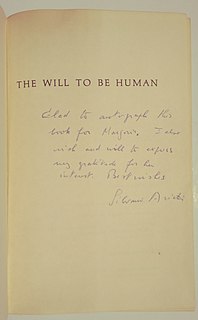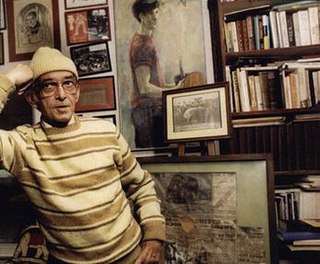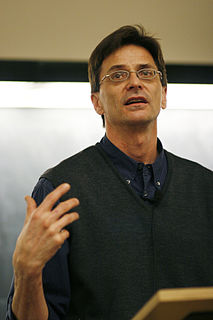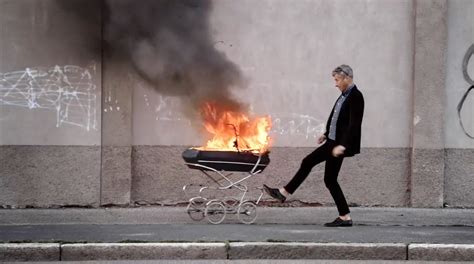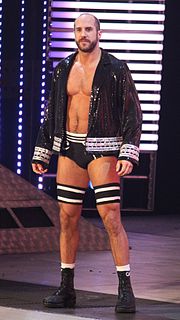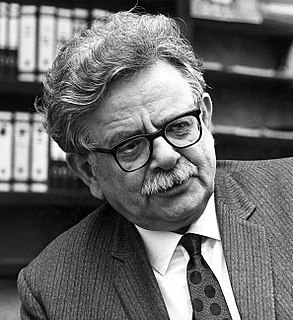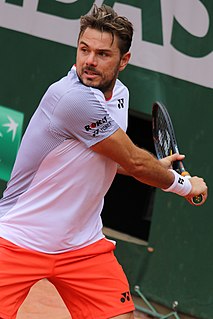A Quote by Thomas Koerfer
The art market does represent a sort of hyper-capitalism: it produces added value without any actual work being done.
Related Quotes
What is it about a work of art, even when it is bought and sold in the market, that makes us distinguish it from . . . pure commodities? A work of art is a gift, not a commodity. . . works of art exist simultaneously in two “economies”, a market economy and a gift economy. Only one of these is essential, however: a work of art can survive without the market, but where there is no gift, there is no art.
All existing art was religious until perhaps a hundred years ago. Within that there's obviously been lots of room for manipulation. I think that's because our current religion is capitalism. Capitalism has the functions of patronage, commissions, control of content, bestowing of space, elevation of certain artists over others based on how much they pander to people in power, the determination of value of the work, all of it. Capitalism commissions artwork now, the market.
What I am trying to say is that it is not without any value. The value of copies is that they can direct us towards the original. I was recently at the Louvre Museum and I was filming people who were viewing the Mona Lisa. I noticed the number of ordinary people, astonished, mouths agape, standing still for long stretches looking at the work, and I wondered, "Where does this come from? Are these people all art connoisseurs?" They are like me; through the years, we've seen this work in our schoolbooks or art history books, but when we stand before the original, we hold our breath.
There’s a virtuous cycle when people have to defend challenges to their ideas. Any gaps in thinking or analysis become clear pretty quickly when smart people ask good, logical questions. You can’t be a good value investor without being an independent thinker – you’re seeing valuations that the market is not appreciating. But it’s critical that you understand why the market isn’t seeing the value you do. The back and forth that goes on in the investment process helps you get at that.
The person who appreciates a great work of art has the feeling that the work grows in him as he becomes involved in a prolonged capturing of emerging marginal meanings. He feels that he, too, is creative, that he himself is adding to his experience and understanding. Moreover, he wants to confront the work of art many times. He is not easily tired of it, as he would be had he read a purely logical statement. He realizes that the work of art does not merely transmit information; it produces pleasure.
Being holy . . . does not mean being perfect but being whole; it does not mean being exceptionally religious or being religious at all; it means being liberated from religiosity and religious pietism of any sort; it does not mean being morally better, it meas being exemplary; it does not mean being godly, but rather being truly human.
The pornographers are not a deviation from the norm. Their presence in the mainstream shouldn't be surprising, because they represent mainstream values: The logic of domination and subordination that is central to patriarchy, hyper-patriotic nationalism, white supremacy, and a predatory corporate capitalism.
One way to measure the size of a company, industry, or economy is to determine its output. But a better way is to determine its added value - namely, the difference between the value of its outputs, that is, the goods and services it produces, and the costs of its inputs, such as the raw materials and energy it consumes.
Ignorance, as well as disapproval for the natural restraints placed on market excesses that capitalism and sound markets impose, cause our present leaders to reject capitalism and blame it for all the problems we face. If this fallacy is not corrected and capitalism is even further undermined, the prosperity that the free market generates will be destroyed.


